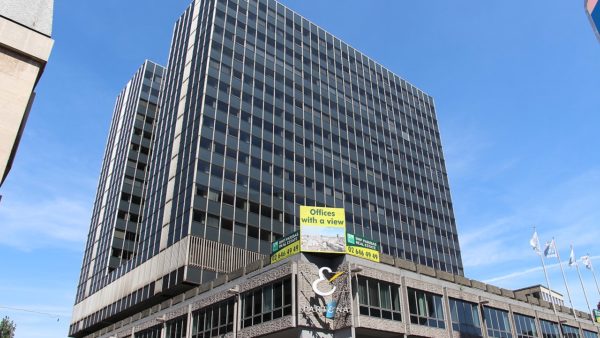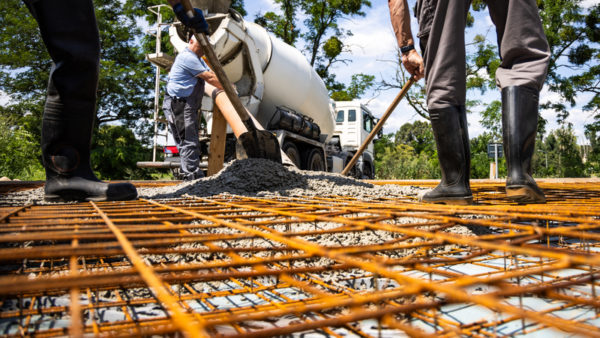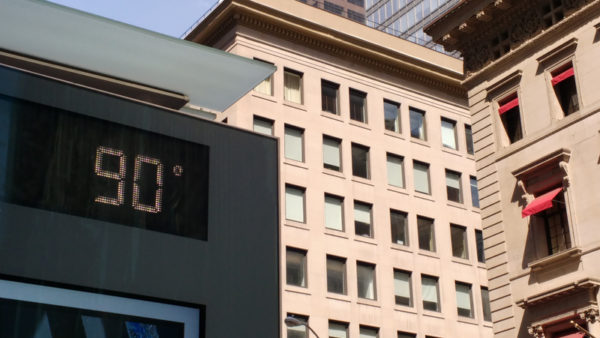Signalling a possible re-evaluation of China’s gung-ho approach to building infrastructure in the developing world, a state-linked expert in Beijing has warned that high-speed rail projects in Africa are “unfeasible”, and would risk miring Chinese banks and companies in debt.
The warning follows doubts raised by western experts over the financial viability of China’s One Belt, One Road (OBOR) strategy, which aims to build new maritime and overland transport corridors linking China and the rest of the world.
It also comes amid growing official alarm in Beijing over China’s ballooning national debt.
Chinese firms should be more sophisticated in assessing risks in Africa, the expert warned, focussing not just on technical aspects but geopolitical and cultural factors as well.
“No country in the world has ever built so many high-speed railways in such a short period of time and pushed for high-speed rail diplomacy as China,” writes Song Wei, researcher at the Chinese Academy of International Trade and Economic Cooperation in the state-owned English-language newspaper Global Times on Monday, 6 March.
But the Chinese model of infrastructure development – where state-run “policy banks” provide cheap loans and Chinese contractors do the building – cannot work for high-speed rail in Africa, said Dr Song, whose academy advises China’s Ministry of Commerce.
High-speed rail’s demand for lots of electricity and its need for a developed economy and high usage rate to support it mean that “no African country” currently meets the requirements, Dr Song said – even though Morocco is planning to open Africa’s first high-speed railway in 2018.
Lessons should be learned, Song said, from the China-constructed Tanzania-Zambia (Tazara) Railway (pictured), infamous for delays, financial losses and accidents.
“Large wild animals”
They should not only make assessments based on concrete conditions such as land, environment, geology, resources and technical specifications but also on factors such as geopolitics, religious beliefs, customs, pubic opinion and cultural conflicts– Song Wei, researcher at the Chinese Academy of International Trade and Economic Cooperation
Among the risks are roaming “large wild animals” that could necessitate elevated tracks, and requirements for companies themselves to purchase land, hire local workers and buy local materials, all of which sends costs soaring.
Companies usually bid too low, Dr Song added.
Even though Chinese policy banks offer low interest rates and long grace periods, host countries’ financial difficulties mean the banks are at risk of being dragged into “bad loan traps”.
Adding to the risk is the fact that countries in Africa lack capacity to operate and maintain railways, which could lead to failures and prevent the railways ever paying for themselves. This combination of circumstances would lead to a lose-lose scenario where a country’s debt and dependence on China grow to unsustainable levels.
“Given the risks, the launch of high-speed rail projects in Africa is currently unfeasible,” Song concludes.
While she encourages standard rail developments such as the Ethiopia-Djibouti railway completed at the end of 2016, Song urges companies to get better at assessing risk.
“They should not only make assessments based on concrete conditions such as land, environment, geology, resources and technical specifications but also on factors such as geopolitics, religious beliefs, customs, pubic opinion and cultural conflicts,” she writes.
She also called for more diversified ways of financing infrastructure to avoid saddling Chinese policy banks with debt. Suggested alternatives included public-private partnerships, Chinese commercial banks, private finance from host countries, even the World Bank.
Politics or profit?
By focussing on high-speed rail, Song avoids criticising China’s multi-billion-dollar rail investments already planned or under consideration for a number of African countries including Nigeria, Uganda, Kenya and Tanzania. No Chinese-funded high-speed rail projects are currently scheduled for Africa.
However, Song’s observations apply to rail, road and other infrastructure schemes pursued by China in Africa and elsewhere in the developing world, and follow warnings by western experts over the financial viability of China’s One Belt, One Road (OBOR) strategy, which sees Beijing preparing to invest up to $1trn on infrastructure in some of the world’s poorest countries.
In January ratings agency Fitch warned that OBOR projects, such as the China-Pakistan Economic Corridor, now costed at $55bn, can be driven by political rather than commercial aims, and “do not have to demonstrate the same level of commercial viability that would be required to attract domestic or foreign investors”.
Fitch said it doubted China’s banks’ ability to identify profitable projects and manage risks when compared to international commercial banks.
“OBOR, in addition to being a way of exporting spare capacity, is a component of China’s efforts to expand its strategic international influence, and a means of securing access to key commodities,” Fitch said. “Meanwhile, local politicians have an incentive to associate themselves with marquee projects. This subjugation of market forces means there is a heightened risk of projects proving unprofitable.”
China’s debt mountain
Song Wei’s warning comes amid growing alarm in Beijing over China’s ballooning national debt, which has expanded from 150% of GDP before 2008 to 277% at the end of 2016.
After more than two decades of rampant growth and profligate lending, its banking regulator has ordered banks to check how much credit risk they are carrying, according to a notice seen by Reuters. On 5 March Chinese Premier Li Keqiang told the annual parliament meeting that China would erect a “firewall” against financial risks.
Image: A train on the infamous Tazara Railway crossing a bridge near the Zambian-Zimbabwean border (Richard Stupart/Wikimedia Commons)
Further Reading:






